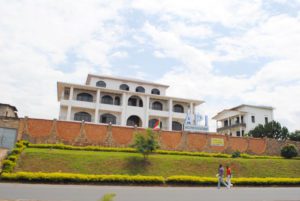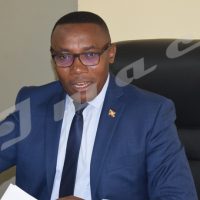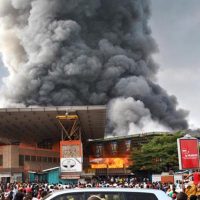Investment Promotion Agency (API) calls on economic operators to promote the export of Burundi products. Exporters say the lack of foreign currencies and electricity are a big challenge to exportation.

Office of Investment Promotion Agency (API)
“Burundi’s trade balance has deteriorated from $ 366 million in 2007 to a worse situation of less than $ 730 million in 2015,” said Didace Ngendakumana, General Director of Investment Promotion Agency (API) in an awareness-raising workshop for exporters on Wednesday, 27 September.
He said the economic balance of Burundi has long been in deficit. “Worse is that the trend shows a steady fall,” he said.
Following the suspension of the European Union direct financial aid to Burundi in March 2016, the country suffers a lack of foreign currencies and thus imported products increase.
Ngendakumana calls on economic operators to engage more in the export of Burundian products. “We call on them to improve the quality and quantity of Burundian products to be competitive on the international market,” said Ngendakumana. For him, economic operators should take advantage of the opportunities offered by the East African Community (EAC) and the Common Market for Eastern and Southern Africa (COMESA) of which Burundi is a member.
Ambassador Gasunzu Pascal, a potential exporter, said the lack of electricity is a major export challenge in Burundi.
“Export means production or industrialization. But, above all, we need energy. Machines cannot operate without power. Production depends on energy, “Gasunzu said.
The Burundian Company in charge of supplying water and electricity [REGIDESO] recently launched an opening of a 20 megawatt thermal power plant to solve the problem of regular power cut that the people of Bujumbura were faced with since the past few months.
For Ambassador Gasunzu, the addition of 20 megawatts to the quantity of electricity that the whole country uses will help address the energetic deficit that has been negatively impacting lives of Burundians especially those living in the capital Bujumbura.
For thirty years, no hydroelectric dam has been built despite the enlargement of the city and the development of the industrial sector, according to Gasunzu.
Mauritius Nduwimana, Manager of “IMENA” factory which produces banana juice in other types of drinks in Kayanza province, accuses the Central Bank (BRB) of not facilitating exporters.”When we export our goods, we deposit the money in foreign currency to BRB and the latter gives us Burundi francs on the official rate, but if we want to import raw materials, BRB refuses to give us the foreign currencies. So, we buy them on the black market at an exorbitant price, “said Nduwimana.
Today, a US dollar costs BIF 1735 at the official rate while it costs BIF 2900 on the black market.
For Ambassador Gasunzu, BRB should take necessary measures to facilitate exporters who need to import raw materials because they are the ones who bring in foreign currencies.
An adviser to the central bank said BRB prioritizes importers of drugs, chemical fertilizers and fuel over others when it comes to giving foreign currency.
Gasunzi finds, however, that BRB should give the entrepreneur the capital he has used and allocate the benefit to other useful purposes.



















 IWACU Open Data
IWACU Open Data

